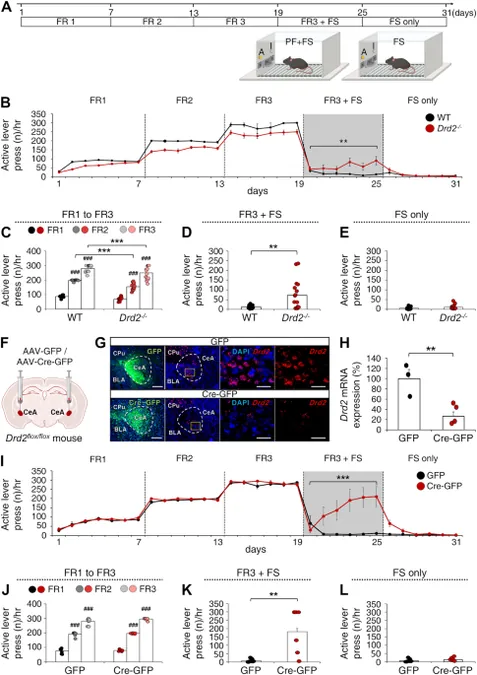
Unlocking the Secrets of Compulsive Eating: How Dopamine D2 Receptors and Insulin Signaling Interact
2025-08-30
Author: Arjun
Dopamine D2 Receptors Play a Key Role in Compulsive Eating
In a groundbreaking study, researchers have discovered the critical role of dopamine D2 receptors (D2Rs) in regulating eating behaviors, particularly compulsive-like eating patterns. When examining mice with modified D2R genes, the absence of D2Rs significantly increased instances of compulsive eating, revealing a direct correlation between dopamine signaling and food intake.
The Experiment: Understanding Compulsive Behavior
Using a self-acquisition task featuring highly palatable foods, researchers evaluated the eating habits of both wild-type and D2R knockout mice. Results showed that while both types of mice learned to press levers for food rewards, the D2R-deficient mice pressed the levers significantly more even when faced with electric shocks, showcasing an unusual perseverance for food despite punishment.
Disrupting D2R Expression in the Central Amygdala
To pinpoint where D2Rs exert their influence, scientists selectively eliminated D2R expression in the central amygdala (CeA). This targeted approach confirmed that D2Rs in this brain region crucially regulate food-seeking behavior, leading to increased compulsive-like eating when disrupted.
Unraveling the Insulin Connection
Recent findings reveal that insulin receptors (InsRs) express highly in the CeA, acting to reduce food intake. The research showed that D2R knockout mice also exhibited lower InsR expression, indicating a link between dopamine and insulin signaling pathways. It appears that D2R activation influences InsR phosphorylation, which plays a key role in regulating how the brain manages eating behavior.
How D2R Activation Affects Insulin Signaling
Through various tests, the researchers observed that activation of D2Rs can stimulate InsR activity, enhancing insulin signaling that inhibits excessive food intake. Interestingly, when both D2Rs and InsRs were activated, there's a notable increase in neuronal excitation in the CeA, leading to a suppression of compulsive-like eating.
Implications for Obesity and Eating Disorders
The findings underscore the intricate relationship between dopamine signaling, insulin function, and eating behaviors. This discovery suggests that targeting D2R and InsR interactions could offer new pathways for treating not only obesity but also various eating disorders. Understanding how these signals affect behavior represents an exciting frontier in neuroscience and behavioral therapy.
The Bigger Picture: A Dual Role for Insulin and Dopamine
This research establishes a foundational framework for how insulin and dopamine systems work together to control compulsive eating behaviors. Given the rising prevalence of metabolic dysfunction in neuropsychiatric disorders, this D2R-InsR interplay may illuminate further therapeutic avenues for conditions like obesity, schizophrenia, and Parkinson’s disease.


 Brasil (PT)
Brasil (PT)
 Canada (EN)
Canada (EN)
 Chile (ES)
Chile (ES)
 Česko (CS)
Česko (CS)
 대한민국 (KO)
대한민국 (KO)
 España (ES)
España (ES)
 France (FR)
France (FR)
 Hong Kong (EN)
Hong Kong (EN)
 Italia (IT)
Italia (IT)
 日本 (JA)
日本 (JA)
 Magyarország (HU)
Magyarország (HU)
 Norge (NO)
Norge (NO)
 Polska (PL)
Polska (PL)
 Schweiz (DE)
Schweiz (DE)
 Singapore (EN)
Singapore (EN)
 Sverige (SV)
Sverige (SV)
 Suomi (FI)
Suomi (FI)
 Türkiye (TR)
Türkiye (TR)
 الإمارات العربية المتحدة (AR)
الإمارات العربية المتحدة (AR)